First Critical Hours 2025
Stream this course using the on-demand catch-up service
- The annual course for emergency physicians, focusing on the clinical management of patients presenting to the Emergency Department
- Aimed at Consultants, Registrars and Middle Grades in Emergency Medicine and Acute Medicine and Specialist Physicians with an Acute Medical ‘take’
- Format: Interactive lectures followed with case scenarios, discussion and Q&A. an opportunity to attend a complete update of the main key topics on 3 consecutive days – a complete CPD package.
- CPD: 18 CPD credits with certificate of attendance issued
DAY ONE
45 minutes
Tachyarrhythmia Presenting to the ED
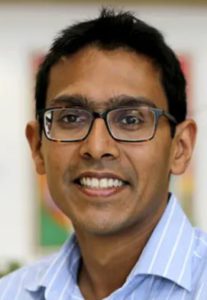
Dr Rohan Wijesurendra
Senior Clinical Research Fellow, University of Oxford , Consultant Cardiologist and Electrophysiologist, Oxford University Hospitals NHS Foundation Trust
- Fast AF – can anybody be sent home from the ED?
- Broad complex tachycardias – treatment tricks of the trade
- Pre Excitation States – why you should not miss them
- Atrial Flutter, Supraventricular Tachycardia or Sinus Tachycardia?
- ED – Cardioversion – chemicals or electrical
45 minutes
Syncope Presenting to the ED

Professor Tim Harris
Professor of Emergency Medicine, Hamad Medical Corporation, Qatar
- ED evaluation
- Rarities worth knowing
- Who stays, who goes
45 minutes
Lactate in the ED plus cases

Professor Tim Harris
Professor of Emergency Medicine, Hamad Medical Corporation, Qatar
- Lactate-guided approach in septic shock presentations?
- Hyperlactatemia as a marker in prognosis and resuscitation
- The evolving role of lactate in sepsis care
45 minutes
TIAs presenting at the ED

Dr Graziella Quattrocchi
Consultant Neurologist, North Middlesex University Hospital NHS Trust
- Stroke vs. TIA
- Common presentations, high risk presentations – TIA clinical diagnosis
- How to spot a stroke mimic
- Evaluation & risk assessment – who to admit to hospital
- Emergency medical treatment in the ED
- What investigations should we perform in ED – plain CTB vs. CT angiogram vs. MRI
45 mnutes
Difficult Airway Management in the ED

Dr Marcus Peck
Consultant Intensivist, Royal Hampshire County Hospital, Winchester
- Airway assessment
- Equipment and drugs required for managing the airway
- Difficult airway management
45 minutes
Acute Heart Failure at the ED
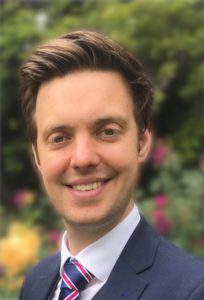
Dr Matthew Sadler
Cardiology Research Fellow, Kings College London
- Diagnosis: echo and systolic dysfunction and acute heart failure with preserved ejection fraction; and the role of BNP
- Treatment: the role of nitrates
- How to make sense of the guidelines: ESC and ASC
45 minutes
Sickle cell and the acute and emergency care of this patient group
Dr Kate Gardner
Consultant Haematologist at Guys and St Thomas's Hospital
DAY TWO
45 minutes
Managing Trauma in the ED

Dr Michael Obiako
Consultant Emergency Medicine, Wales
- Resuscitation
- Code red
- Imaging
45 minutes
Respiratory Emergencies: Investigations, diagnostic and treatment strategies

Dr Pasupathy Sivasothy
Consultant in Respiratory Medicine, Addenbrooke's Hospital, Cambridge
- Asthma update - not all wheeze is asthma
- Shortness of breath
- Acute respiratory infections inc CoVid-19
- COPD and PE
- When to ITU
45 minutes
POCUS in the ED

Dr Michael Trauer
Consultant in Emergency Medicine at Guy's and St Thomas' NHS Foundation Trust
- Lung Ultrasound (LUS)
- ECHO
- Shock & Sepsis
45 minutes
Toxicology

Dr Laura Hunter
Consultant Emergency Medicine & Clinical Toxicology, Guy’s & St Thomas’ NHS Foundation Trust, London
- Severe poisoning at the front door
- Theory in to practice
- Clinical scenarios
45 minutes
Obstetric Emergencies including Resuscitative Hysterotomy

Dr Rocio Santamaria
Consultant in Emergency Medicine, Guy's and St Thomas' NHS Foundation Trust, London
- Pre-eclampsia, eclampsia
- Major bleeding in pregnancy
- Resuscitative hysterotomy
45 minutes
Procedural Sedation in the Emergency Department

Dr Maja Gavrilovski
Emergency Medicine Consultant, Guy's and St Thomas' NHS Foundation Trust and Pre-Hospital Care Consultant, Kent Surrey Sussex Air Ambulance (KSS)
45 minutes
Acute kidney/renal failure at the ED

Dr Marlies Ostermann
Consultant in Nephrology, St Thomas' Hospital, London
- Key underlying renal conditions and implications from Covid 19
- Acute Kidney Injury: mechanisms, investigation and management
- Imaging in renal disease
- Chronic renal failure in the ED
45 minutes
Managing Paediatric Emergencies by the Adult Clinician at the ED
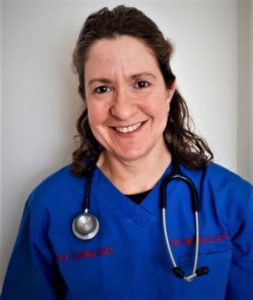
Dr Michelle Jacobs
Consultant and Clinical Lead in Paediatric Emergency Medicine, Northwick Park Hospital
- Not small adults - different presentations in children
- Trauma - falls, injuries, burns
- Identifying the sick child
- The ultimate fear - paediatric resus - latest updates
- When to refer
- Adolescents in the ED - big kids or small adults?
45 minutes
Chest Pain in the Emergency Patient

Dr Laura Hunter
Consultant Emergency Medicine & Clinical Toxicology, Guy’s & St Thomas’ NHS Foundation Trust, London
- Key lessons
- Liaison and coordination amongst specialities
- What is next? - Future changes and sustainability
DAY THREE
45 minutes
The role of AI in the ED

Dr Carlos Lojo Rial
Consultant in Geriatric and General Medicine, Guy’s & St Thomas’ NHS Foundation Trust, London
45 minutes
The vulnerable patient at the ED

Dr Georgina Blanco
Consultant in Emergency Medicine, Royal Surrey County Hospital NHS Foundation Trust
- Patients presenting following domestic violence
- Patients reporting sexual assault
- Safeguarding victims of modern slavery
- Migrant health
45 minutes
Frailty Syndromes in the Emergency Department

Dr Grace Walker
Consultant in Geriatric and General Medicine, Guy’s & St Thomas’ NHS Foundation Trust, London
- Capacity issues in dementia
- Falls management
- Confusion and delirium
- Medication review
- Immobility
- End of life care
45 minutes
ENT Emergencies in the ED

Dr Stergiani Tsiouvaka
General Otolaryngology. Princess Royal University Hospital, King's College Hospital NHS Trust
- The most common ENT emergencies eg. epistaxis, foreign bodies in ear, nose and throat, stridor, Acute mastoiditis, trauma, facial bone fractures etc
- Otitis external or otitis media
- Sudden sensorineural hearing loss
- Tympanostomy - occasionally surgical drainage
- When to refer to ENT specialist
45 minutes
Diabetic Emergencies presenting at the ED

Dr Parizad Avari
Consultant Diabetologist and Honorary Clinical Lecturer, Imperial College London
- Diabetes technology in the acute setting
- Diabetic ketoacidosis (DKA)/ Hyperosmolar Hyperglycaemic State (HHS)
- Hypoglycaemia
- Diabetes in pregnancy
45 minutes
Major Incidents - Planning Guide for the ED

Dr Holly Gettings
Consultant in Emergency Medicine, Guy's and St Thomas' NHS Foundation Trust, London
- Cyber attacks
- Gas attacks
- Bombs and blasts
- Mass hysteria
- Pandemic – key lessons from Covid and Flu pandemic
The content
- Practical focus on the more difficult aspects of Emergency, Acute and General Medicine presentations in the first critical hours.
- A revised programme covering a range of relevant clinical topics, selected on the basis of recent impact and concequences from COVID-19, past delegates’ feedback and a survey of emergency/acute medicine practitioners/experts.
- A Faculty of experienced specialists in their fields, from different hospitals in the UK and abroad, who can pass their expert knowledge to front-line clinicians.
- Interactive on-line lectures followed with case scenarios, discussion and Q&A.
- Contributes to developing effective team management for doctors from a variety of backgrounds who are actively delivering emergency and acute care.
Learning outcomes
By the end of the course, the delegate will have:
- a comprehensive understanding of current evidence-based best practice and emerging issues in a range of clinical areas highly relevant to the day-to-day practice of emergency and acute physicians;
- greater confidence in his/her clinical practice; and
- identified skills and knowledge gaps, if any, relevant to his/her practice, and clear ways by which these can be addressed.
Course advisors

Dr Laura Hunter
Dr Laura Hunter is a Consultant in Emergency Medicine and Clinical Toxicology at Guy’s and St Thomas’ NHS Foundation Trust, London. She completed Emergency Medicine Higher Specialist Training in Merseyside Deanery, prior to her move to London in 2010. Special areas of interest include recreational drug toxicity, Inclusion Health and the development of Routine Blood Borne Virus screening within the Emergency Department.

Professor Tim Harris
Tim was born in the UK but has spent around half his life overseas. He trained in Emergency Medicine and Intensive care medicine in Australia. He has 15 years experience in prehospital care in Australia (Victoria and Sydney Lifesaver) and UK (London HEMS and East Anglia Air Ambulance). His clinical career has been based around major trauma centres in Australia and the UK. He has worked in 43 hospitals in 11 countries and mixed training with travel for volunteer work in Africa, India and Samoa.
Tim has worked at Barts Health for 16 years and was appointed Professor Emergency Medicine at QMUL and BH in 2012. In 2018 he moved to Hamad Medical Corporation, Doha, Qatar; one of the largest EDs in the world seeing 1800 patients each day. He is deputy chair and lead for academic affairs.
He divides his academic time between teaching and research. His main interests are resuscitation, ultrasound, airway, point of care testing and education. His research time is focussed facilitating and recruiting to large multicentre studies. He has published around 100 papers. His current main focus is leading the QMUL Emergency & Resuscitation MSc. He supervises the academic trainees and academic students in their research programs and runs the undergraduate and some of the post-graduate teaching programs for QMUL.
Faculty members

Dr Parizad Avar
Consultant Diabetologist and Honorary Clinical Lecturer, Imperial College London

Dr Georgina Blanco
Dr Georgina Blanco is a Consultant in Emergency Medicine at Guy’s and St Thomas’ NHS Foundation Trust, London. She completed Emergency Medicine Higher Specialist Training in South London Deanery before undertaking a fellowship in Clinical Toxicology at St Thomas’ Hospital. Special areas of interest include vulnerable adult care, drug and alcohol presentations and youth violence reduction.
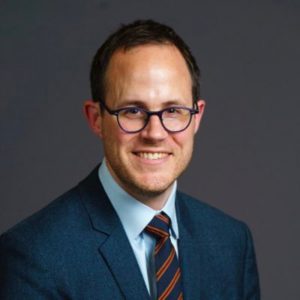
Dr Dan Bromage
Dr Bromage is a Consultant Cardiologist at King's College Hospital NHS Foundation Trust and Honorary Senior Lecturer at King's College London. His clinical interests include heart failure and inflammatory cardiomyopathies. His research focuses on manipulating inflammation after myocardial infarction to reduce progression to heart failure.

Dr Maja Gavrilovski
Emergency Medicine Consultant, Guy's and St Thomas' NHS Foundation Trust and Pre-Hospital Care Consultant, Kent Surrey Sussex Air Ambulance (KSS)

Dr Matthew Ginks
Consultant Cardiologist, John Radcliffe Hospital, Oxford

Dr Michelle Jacobs
Michelle is an RCEM consultant with subspecialty accreditation in paediatric emergency medicine and works at Northwick Park hospital in Harrow, as the ED clinical lead for paediatric ED.
Her particular area of interest and focus for several years has been on the management of adolescents in the ED and beyond- delivery of developmentally appropriate healthcare for this often neglected) age group and working towards improving the experience and the care which we provide to them. On this topic she has researched, and published and spoken at many national meetings and events. I am a member of the RCEM Paeds emergency medicine professional advisory group and the RCPCH intercollegiate emergency standards committee to further this work.
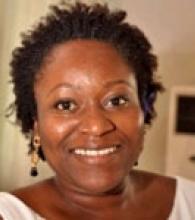
Dr Rachel Kesse-Adu
Dr Rachel Kesse-Adu FRCP, FRCPath qualified in Medicine from Imperial College School of Medicine in London in 2002 and specialised in haematology at the Kings College Hospital. She was appointed to her current consultant haematology post at Guy's and St Thomas' in 2012.
Rachel's research interests focus on the cardiovascular and urological complications of sickle cell anaemia. She is interested in postgraduate education and is the training program director for haematology specialist trainees on the London South Central rotation. She is one of the network leads for the south thames sickle cell and thalassaemia network and chair of the guideline writing group. She is clinical lead for the haemochromatosis service.

Dr Alistair Lumb
Consultant Diabetes/AGM, Oxford University Hospitals NHS Foundation Trust

Dr Michael Obiako
Consultant in Emergency Medicine, Royal Glamorgan Hospital - Cwm Taf University Health Board and Ultrasound Lead for the All Wales School of Emergency Medicine

Dr Marlies Ostermann
Consultant in Nephrology, St Thomas' Hospital, London

Dr Marcus Peck
Consultant Intensivist, Frimley Park Hospital

Dr Rocio Santamaria
Consultant in Emergency Medicine at Guy's and St Thomas' NHS Foundation Trust, London

Dr Pasupathy Sivasothy
Consultant in Respiratory Medicine, Addenbrooke's Hospital, Cambridge

Dr Michael Trauer
Consultant in Emergency Medicine at Guy's and St Thomas' NHS Foundation Trust

Dr Grace Walker
Consultant in Geriatric and General Medicine, Guy’s & St Thomas’ NHS Foundation Trust, London

Dr Rohan Wijesurendra
Dr Rohan Wijesurendra MB BChir MA (Cantab) DPhil (Oxon) MRCP FESC
Dr Rohan Wijesurendra studied medicine at Cambridge University with several prizes and scholarships including Distinctions in all parts of the Final MB and award of the George Peter Baker prize. He completed MRCP and higher specialist training in Cardiology in Oxford and was awarded a DPhil in Cardiovascular Medicine from the University of Oxford in 2018.
Dr Wijesurendra works jointly as Senior Clinical Research Fellow at the University of Oxford and as Honorary Consultant Cardiologist and Electrophysiologist at Oxford University Hospitals NHS Foundation Trust. He undertakes a wide gamut of clinical work in cardiac rhythm management, including diagnostic electrophysiology, simple and complex ablation, and device implantation and extraction. His research interests focus on large-scale clinical trials and mechanistic imaging studies, particularly in atrial fibrillation.

Dr Carlos Lojo Rial
Emergency Physician in Geneva Switzerland
Interest in interface between critical and Emergency medicine. Interested in medical technology especially automation in the ED
Vice chair of the Quality & Safety working group for the European Society of Emergency Medicine. Works in his spare time with the London Institute for healthcare engineering
Feedback from this course in 2024
- Excellent speakers, very good coverage of a good range of topics with practical focus
- Great course, really useful wide range of topics - all very relevant
- Some tech glitches that will always happen with remote presentations; however, they were promptly picked up and resolved immediately by Informed support
- Excellent range of subjects, engaging and very well organised
- This course has a very good selection of topics, great presenters and it is all very relevant to practice
- Good coverage and enjoyed Slido
- Very good punctuality, extensive coverage, Excellent speakers.
- Very good timekeeping, choice to topics and presenters.
- I cannot think of anything to suggest, this was an intensive two day course but good coverage and content, I did enjoyed it
- Very knowledgeable speakers knowledge, very good selection of relevant topics, timely delivered at a reasonable fee.
- I enjoyed the wide range of topics, excellent timekeeping, use of slido/chat
- Excellent course content ,quality of speakers and the course being online – no cost of traveling/hotel!
- Very good selection of topics covered by expert presenters and pitched at the right level
- Very useful update and relevant to everyday practise update
- Very good content in a variety of lectures of the right length
- Excellent cover of a diverse number of topics. Some could have been pitched a bit more to ED, but I still took very good learning away from every session.
- I'm a bit traditional - I do miss face to face, but we are in a different era now and in retrospect trawling down to London would have been onerous (especially given the weather at the moment). This was a well delivered online course
Feedback from this course in 2023
- Good selection of topics, spread over time to avoid information overload, interactive sessions
- Quality of information, quality of presenters
- Up to date information, practical tips , case scenarios.
- I can do it in my own home. It ran smoothly with good IT support. Good coverage of the major topics.
- Watching later recordings , emergency concentration of topics and experienced speakers in the area
- More webinars!!!
- This has been very helpful to keep uptodate with presentations we see in our EDs. Definitely recommended and kudos to all members who made this webinar possible.
- Became more confident when see the patient in Emergency department
- improve my practice
- I always learn something new to apply to my practice
- I always learn something new to apply to my practice
- Lung US will change my practice. Others were a catch-up/refresher
- There are lots of learning points which I will be taking back to my daily practice.
- Update knowledge and practice as Faculty presenting are top and leading ED consultants.
- Increased confidence in dealing with ED patients
- Diversity of topics Knowledgeable speakers Online platform made it readily accessible, would have struggled to attend in person
- Great to get intensive teaching. I like the experts in their subjects and their enthusiasm. Post-webinar access is helpful
- Good Coverage to ED, relevant to my specialty and updated practice.
When will I receive my course login?
We will contact you by email one week before the course takes place with all the necessary links and joining information.
We will re-send the links the day before the course.
If you have not received an email from us please contact us at webinars@infomedltd.co.uk and we will respond ASAP.
Will I need any special software to partake?
NO. Infomed shall provide you, upon registration a link to stream the course within your web browser, or you can download a small application to run it as a separate window on your computer. If you would prefer a mobile device, we shall also include a link download an app from the Play Store/App Store.
Can I interact with the speakers?
YES! It is very much encouraged. There will be Q&A sessions chaired by Infomed. You can type your questions in the ‘chat’ facility and they will be put to the speakers.
How I do access my catch-up & CPD certificate?
You can find your catch-up in your account page.
At the end of the catch-up page you will find a link to the feedback form, which will generate your CPD certificate when you submit your feedback.
If the catch-up is not visible in your account, please contact us and we will amend your account ASAP.
How to connect to a live online course
Using the short videos below, we shall guide you through the process of joining a meeting using Webex.
If joining from your own computer
If you are connecting from your own device then it is likely that you will be able to join via the Webex application.
If joining from a trust/institution computer
However, if you are using a computer that is owned and restricted by your trust, then you may find it easier to join via your web browser. Please see the second video for guidance on this process.
Joining Webex using the application on your PC or Mac
Joining Webex using your web browser
Accessing the PACS
Using the short videos below, we shall guide you through the process of opening the PACS and then on to opening, manipulating, and closing a case.
You are welcome to access our demo case set below
View demo cases here
Password: INFOMED
Accessing the database and cases on PACS
Advanced features of PACS
I've connected to a course but can't hear anything
When you connect to a course you should see some introductory slides and hear music.
If you cannot hear any music please check you are connected to the audio.
At the bottom of the webex meeting you may see a button that says “Connect to audio”.
Click this and then select “Use computer for audio” in the pop-up box.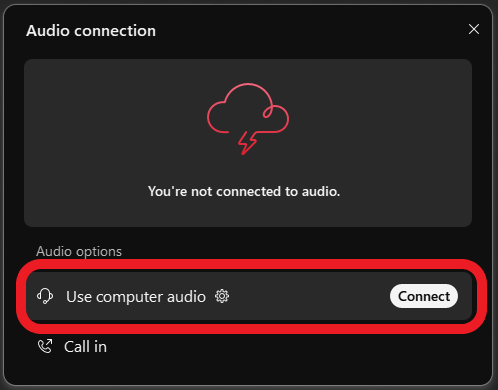
If you have connected by a browser you may need to give your browser access to your microphone in order to connect to the audio.
Click the padlock in the top left of your browser and make sure microphone access is allowed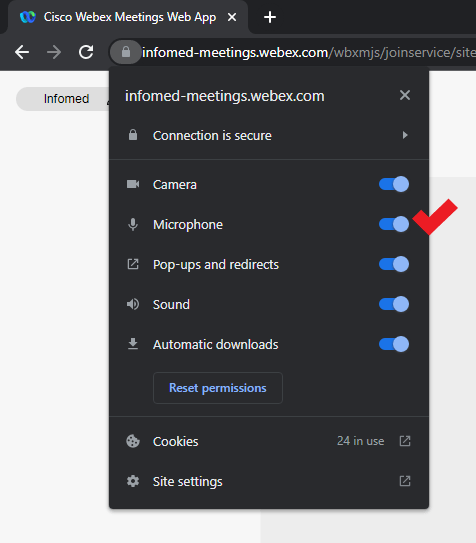
If this does not resolve your issue please email us or call us on 0204 520 5081
What do I need to join a course?
To join an Infomed Online course you simply need an internet connection and a browser (Google Chrome, Mozilla Firefox, Apple Safari).
You can also connect from a mobile device: Download the Webex Meetings app from your App Store.
To join a course with a smooth experience, your internet connection must be stable, not connected to a VPN and at least 20Mbps download.
Below you can use the tool to run an internet speed test.
You must test from:
- — the location that you intend the see the course from;
- — withing the location, if using Wi-Fi, the room or department area that you intend to view the course from to ensure a good signal
- — if connecting from home, a computer that is not connected to a workplace VPN
Speed test
Internet Speed Test
Please test your connection speed at www.fast.com
To join a course with a smooth experience, your internet connection must be stable, not connected to a VPN and at least 20Mbps download.
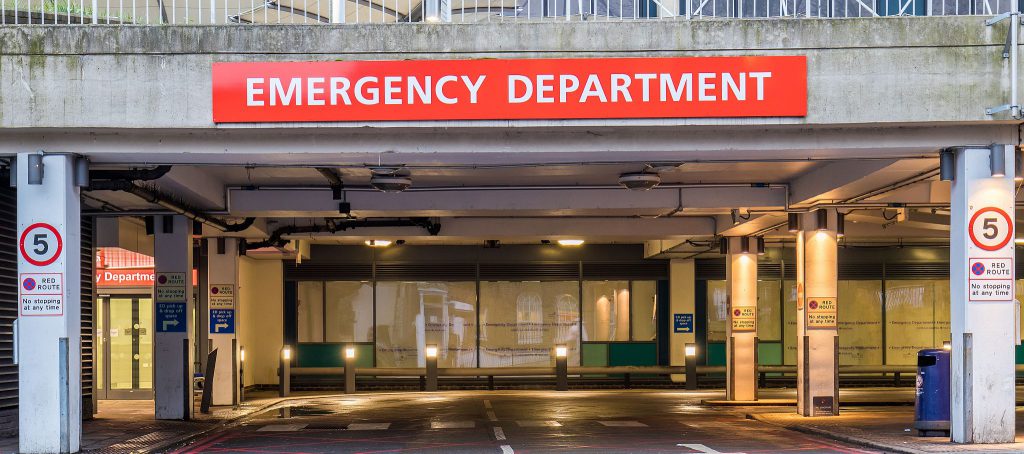
Course fee
Catch-up version
- 120 days of access with unlimited playback
One day: £175 inc VAT
Two days: £295 inc VAT
Three days: £425 inc VAT
- Certificate of attendance with 18 CPD points (6 points per day)
- Send your questions to the faculty
- Playback from any device
